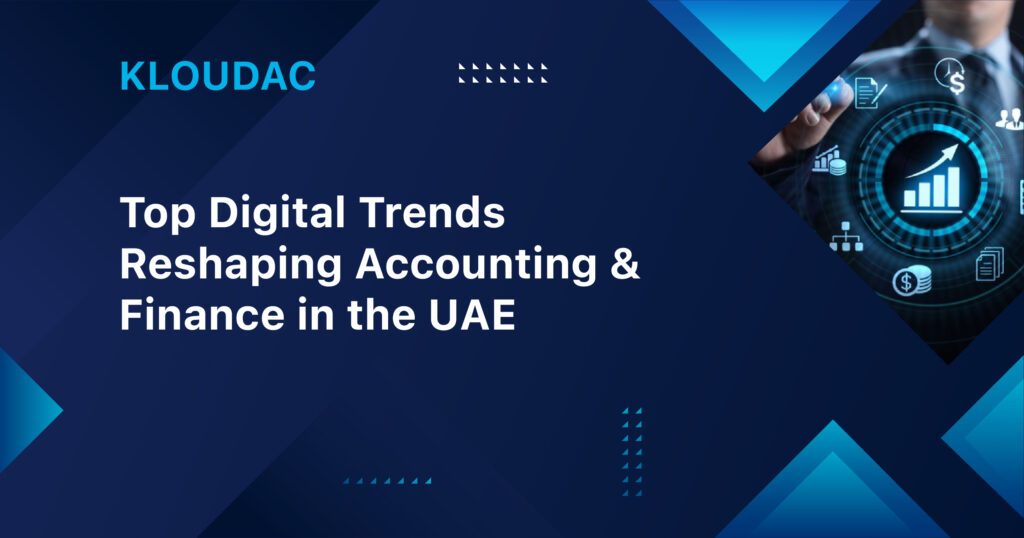The UAE is undergoing a digital shift that’s transforming every industry, and accounting services in Dubai are at the forefront of this evolution. With strong government support, regulatory innovation, and regional leadership in AI adoption, the UAE’s digital economy is setting new standards in financial operations, compliance, and analytics.
Why the Digital Economy Matters to Accountants
The UAE Digital Economy Strategy, launched in 2022, aims to double the contribution of digital sectors to GDP, from 9.7% to over 19% within 10 years. Therefore, accounting and finance professionals are expected to align with this vision by adopting tools that improve speed, security, and strategic decision-making.
Key Trends Shaping Finance in the UAE
1. AI and Generative AI Surge in Finance Tools
According to Gulf Business, the UAE is leading the region with a 344% growth in GenAI adoption. In accounting, this means:
- Automated reporting and reconciliations
- AI-powered audit tools for risk detection
- Intelligent forecasting and budget analysis
2. Cloud-Based Accounting Solutions
Consequently, cloud platforms like XERO and QuickBooks Online are becoming the norm for UAE SMEs. Benefits include:
- Real-time access to financial data
- Seamless VAT integration with FTA’s EmaraTax
- Reduced IT infrastructure costs
Moreover, businesses that migrate early gain agility in audits, forecasting, and compliance.
3. RegTech for Tax & Compliance
Furthermore, the rise of RegTech (regulatory technology) is helping businesses automate:
- Corporate tax filings
- VAT return submissions
- E-invoicing compliance (ahead of the 2026 mandate)
This trend, in turn, ensures better alignment with FTA and MoF digital frameworks.
4. Blockchain for Financial Transparency
While still in early adoption stages, blockchain is being explored for:
- Smart contracts in audit trails
- Tamper-proof ledgers in cross-border payments
- Transparent inventory and invoice tracking
Consequently, for finance teams, blockchain promises reduced fraud risk and improved trust in reporting.
5. Cybersecurity as a Financial Control
Therefore, with digitization comes increased risk, UAE finance teams are now integrating:
- Cyber audits are a form of regular internal review
- Data encryption and multi-layer authentication
- Real-time monitoring to prevent breaches
Consequently, as financial data moves online, cyber-risk management becomes an accounting responsibility, not just an IT task.
What UAE Businesses Should Do Now
| Trend | Recommended Action |
| AI Adoption | Moreover, explore tools for forecasting and reconciliation. |
| Cloud Accounting | Next, migrate to platforms like XERO or QuickBooks. |
| E-Invoicing | In addition, prepare systems ahead of the July 2026 deadline. |
| RegTech | Next, automate VAT and CT filings with integrated tools. |
| Cybersecurity | Moreover, incorporate data protection into accounting SOPs. |
How KLOUDAC Supports the Shift – Accounting Services in Dubai
KLOUDAC provides advisory and digital accounting services in Dubai, UAE, that align with the evolving digital economy. Additionally, from AI-driven tools to tax automation platforms, we help businesses:
- Upgrade to cloud accounting systems
- Prepare for e-invoicing integration
- Automate compliance with corporate tax and VAT
